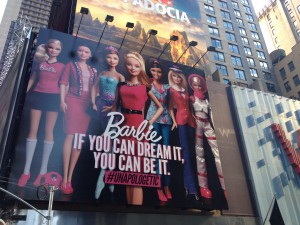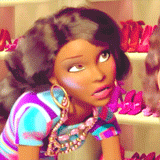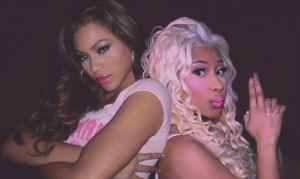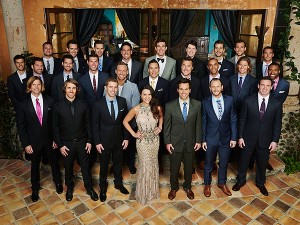I’d like to start this post with a puzzle:
A young boy and his father are in a car accident. The father dies at the scene. The boy is transported to the hospital, taken immediately into surgery… but the surgeon steps out of the operating room and says, “I can’t operate on this boy – he is my son!” How is this possible?
(Please don’t continue reading until you have an answer or conclude that no answer exists. Enjoy these gifs of Jon Stewart in the meantime.)

I’ll wait.

If you’re in a very small minority of readers, you immediately realized that the surgeon was the boy’s mother. (The proportion of solvers may actually be higher than in normal circumstances. If you’re reading this blog, you’ve been primed to be thinking about feminism and women’s rights).

However, if you’re like the rest of us, you’ve fallen victim to one of the many associations that our society instills in us from an early age. The surgeon = male association is one of many “implicit biases” identified by Social Psychologists Mahzarin R. Banaji and Anthony Greenwald in their book Blindspot: Hidden Biases of Good People.
The above puzzle and seemingly obvious solution, which I borrowed from Banaji and Greenwald’s book, can be quite alarming to those of us who consider ourselves feminists. I’ve grown up surrounded by female professionals – my doctor is female, my neighborhood is full of female surgeons, and my mother is a lawyer! Even so, reading the puzzle I found myself thinking, How can this be?! Maybe the dad survived? Or the kid is adopted? When I shared this puzzle at a dinner party, one person concluded that the only possible answer was that the son had two gay dads. Possible, yes, but the ratio of gay male fathers to mothers would make this much less likely.
This brings up an important question, one which you, if you failed to solve the puzzle, might be asking yourself: Am I sexist? Well, yes and no. If you’re reading this blog, I’m going to go ahead and say you’re probably not someone with openly sexist beliefs and attitudes. In fact, you’re probably one of those amazing people who actively work to combat sexism. That said, people are products of their societies. We live in a world that tells us women can’t be surgeons, and, over time, our subconscious minds have absorbed this bias. The attitudes we are exposed to and the media we encounter every day affect how we see the world, whether we like it or not.

In my last post, I wrote about the importance of bringing together intersectional feminism with social psychology research, and I promised to follow up with five ideas from social psychology that apply to feminist activism. I’ll try to keep it short (and I will continue punctuating with Jon Stewart gifs because, well, he’s beautiful), but feel free to comment if you’d like to learn more! Here goes:
1. Implicit Biases: We all have prejudices, but we aren’t likely aware of them.
Over the last century, as we’ve begun to emphasize the importance of being politically correct and unbiased, most people have become much more reserved about admitting their biases. While this is obviously a step in the right direction, it’s made it much harder for social psychologists to test people’s biases. In the 1930s, restaurant owners throughout the country were more than willing to admit to researchers that they would not serve Asian customers. Now, even when assured that survey answers are anonymous, people are much less forthcoming. More than that, they may not even be aware (or willing to admit) their prejudices, since being openly prejudiced is not socially acceptable. That’s why Banaji and Greenwald’s work is so instrumental – they developed an innovative way (using time-sensitive computer matching tasks) to test for implicit biases, whether or not the research subject is aware of those biases. On their website, you can test yourself for biases on the basis of race, age, weight, religion, sexuality, and others.
A word of warning, however: don’t take the test unless you really want to know the results. You may (in fact, you likely will) find yourself biased against groups that may be dear to you, maybe even groups you belong to. Tread carefully, and use whatever information you glean to help you correct for your biases in whatever way you can.
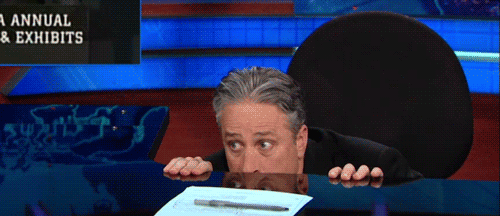
2. Internalized Oppression: We absorb the inaccurate stereotypes surrounding groups we belong to.
We often picture prejudice as a member of the ingroup openly disliking a member of the outgroup. It’s not always that easy. We all internalize prejudicial beliefs before we’re even old enough to realize it, which can be particularly damaging to those harmed by biases and stereotypes. In their infamous 1940s doll experiment, which was instrumental in the Brown v. Board of Education decision, Kenneth and Mamie Clark discovered that, when given a choice between playing with a black doll and a white doll, the vast majority of children, black or white, chose the white doll. This experiment was later recreated in the film A Girl Like Me, as evidence of the sense of inferiority that African-American children absorb from the media and from larger social attitudes.

3. Stereotype Threat: The mere awareness of stereotypes about our group can actually change our behavior or performance.
Think back to the last time you took a standardized test – the SAT, the ACT, some state testing from the ‘No Child Left Behind’ era maybe? It is likely that before you took the test, you were asked some basic demographic questions: name, address, age, race, and gender. Well, if you are female, Black, or a member another group that is believed to do poorly on tests (particularly math), simply being primed to think about that demographic information, and the stereotypes accompanying it, may have negatively impacted your performance. In this way, stereotypes, when activated, can act as self-fulfilling prophecies, usually with harmful consequences. This idea of stereotype threat, developed by Claude Steele and Joshua Aronson, has the potential to revolutionize how we understand equality in education, including high-stakes testing, which has been shown to be biased against minorities in a variety of ways.

4. Attritional Ambiguity: Negative feedback can affect members of stigmatized groups differently.
In psychology, an attribution is defined as the way someone explains events and behaviors. The attributions we make and the patterns we display when we make attributions, particularly attributions about events and behavior that influence us, can affect our mental health. How does this relate to feminism? The research shows that members of stigmatized groups may be affected differently by feedback. When a member of an underprivileged or stigmatized group receives feedback, whether positive or negative, they often do not know whether to attribute that feedback to their behavior or their membership in a given group. For members of stereotype-vulnerable groups, this can be cognitively taxing and can lead to reduced self-worth. For example, if an woman doesn’t know whether she didn’t get a job due to her qualifications or her gender, she may feel helpless out of fear that she was disadvantaged by an identity she cannot control. And, because she doesn’t know why she didn’t get the job, she may have trouble adjusting her behavior to better position herself for future jobs.

5. Schemas and Stereotypes: We need to understand why we have biases in order to overcome them.
A “schema” is a pattern of knowledge that organizes information and can be used to predict behavior. Schemas are necessary as they reduce our cognitive load and provide a way for us to process and apply information about the world around us. For example, when we think of school, our schema may prompt us to think about books, teachers, classes, desks, school supplies, etc. Schemas are often useful and unproblematic. However, when schemas become stereotypes, they’re less innocuous. Stereotypes are schemas that apply to specific groups. These often give rise to prejudice and bias. While our aforementioned school-related schema is unproblematic, another schema might cause us to associate female with and being bad at math. It’s important to look at stereotypes within the larger realm of schemas. If we understand schemas as serving to reduce the cognitive load, we can begin to understand how to combat whatever stereotypes we might have. Doing so requires more cognitive effort and a conscious decision to reject the stereotypes that society has instilled in us.

Final Thoughts:
I’m a big believer in the importance of research and evidence when attempting to bring about social change. I think that the research like that being conducted by the authors of Blindspot has great potential to change the way we think about ourselves, others, and the world we live in. Ultimately, education and knowledge are essential vehicles of social change. I plan to continue to learn, contribute ideas, and share knowledge for the rest of my education and beyond.






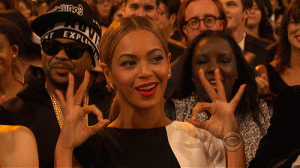 t because of gender and orientation. Oh, and I got to see the Beyoncé and Jay-Z concert for free.”
t because of gender and orientation. Oh, and I got to see the Beyoncé and Jay-Z concert for free.”













